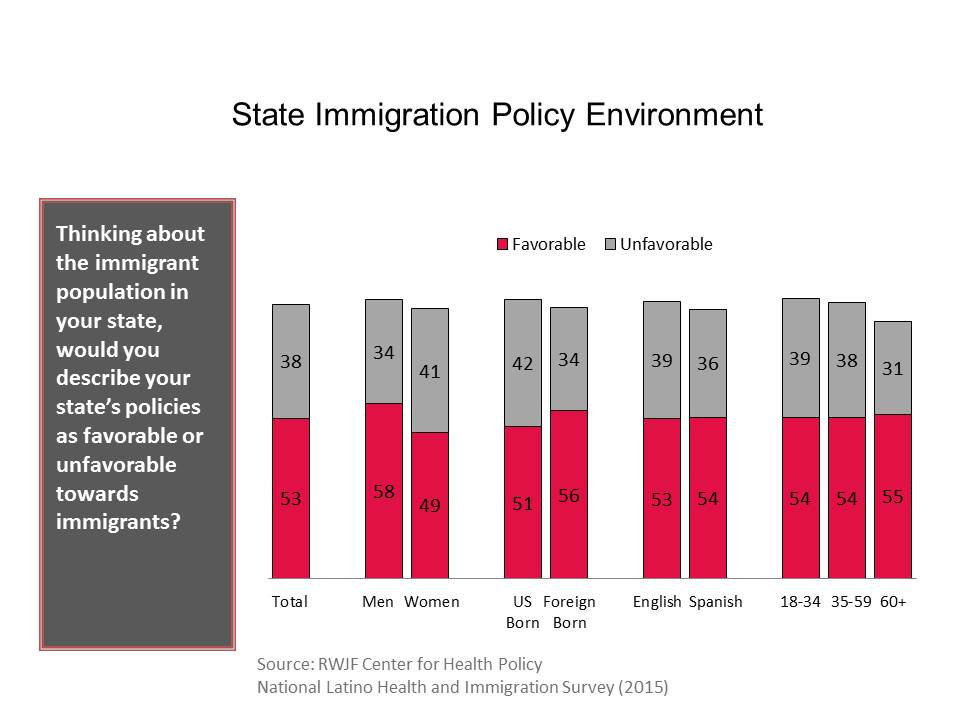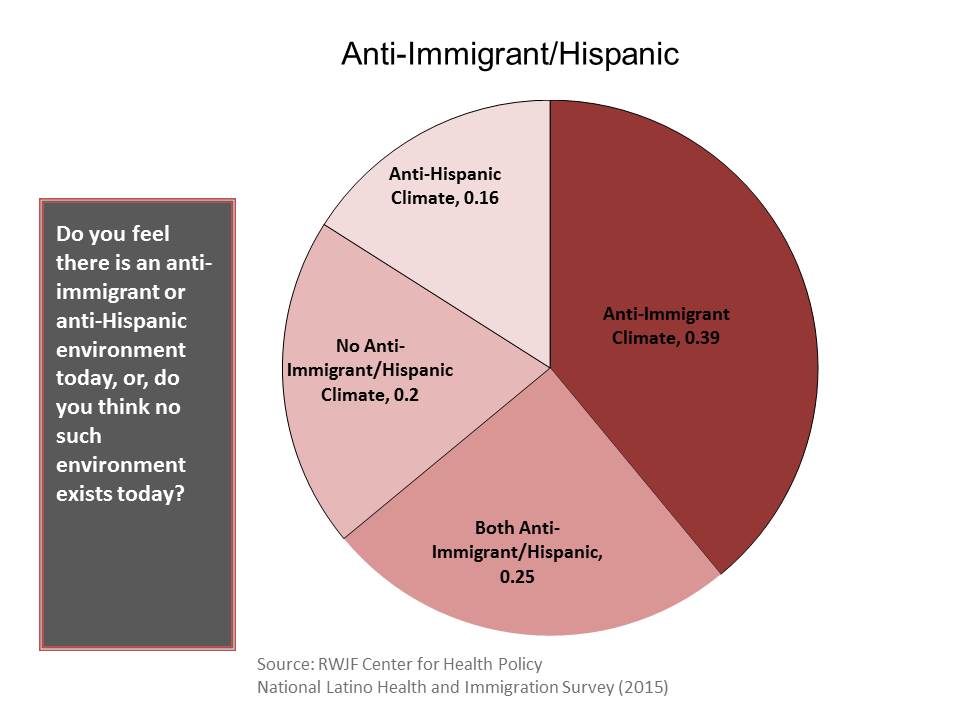The first 50 days of President Trump’s administration has seen an increase in immigration raids and the rise of hate crimes towards immigrants. This anti-immigrant sentiment is creating fear and stress for immigrants which ultimately lead to negative health outcomes. In our paper recently published in the Journal of Health Politics, Policy and Law we examine how living in an anti-immigrant environment can negatively impact Latina/o health, consistent with recent published research by Dr. Francisco Pedraza. Using nationally representative data from the Latino National Health and Immigration Survey (LNHIS, n=1,493) funded by the RWJF Center for Health Policy at the University of New Mexico and implemented by Latino Decisions, we examine the relationship between Latino’s perceptions of where they live and their self-reported physical health and mental well-being. Our findings show that 38 percent of Latinos perceived their state’s immigrant policies as unfavorable towards immigrants. While this data collection was conducted in 2015, we believe the current political environment will exacerbate health disparities for an entire generation of Latina/o Americans.
Perceptions of anti-immigrant environments are affecting Latino health more broadly, not just Latino immigrants who are the targets of federal and state immigrant policies. Our findings suggest that the odds of reporting poor health are 1.7 times larger for respondents who perceive their state’s immigrant policies as unfavorable. In other words, Latinos who believe that where they live is unfavorable towards immigrants are 70 percent more likely to report poor health regardless of their own legal or nativity status.

The conflation of race and ethnicity with immigration status is a prominent feature of current anti-immigrant climates across the nation. Thus, we asked respondents whether their perceptions of hostility were anti-immigrant or anti-Hispanic. Over 80 percent of Latinos reported that there are currently anti-Hispanic and anti-immigrant sentiments, policies, or attitudes in the US.
We find that odds of reporting poor health are 1.4 times larger for respondents who perceive the environment in which they live is both anti-Hispanic and anti-immigrant as opposed to those who believe no such environment exists. When examining mental health, we find that Latinos are 1.6 times more likely to report needing to seek help for emotional or mental health problems when they perceive the environment as both anti-Hispanic and anti-immigrant. All models are adjusted for covariates associated with Latino health status. Additionally, when examining Latinos’ relationships with undocumented immigrants, we find that Latinos who know about a family or friend being deported are 1.5 times more likely to report needing to seek help for emotional or mental health problems such as feeling anxious, sad, or nervous.

The United States is undergoing a nearly unprecedented period of heightened immigrant policy activity that has a marked punitive and anti-Hispanic undertone. Latinos are acutely aware of these laws, with the majority of respondents in this survey indicating that the laws in their state are unfavorable to immigrants. Our research findings suggest that living in a state that is unfavorable to immigrants and Latinos is leading to poor physical and mental health outcomes. As we begin the transition into a new administration, it is vital that we create policies that promote health and wellness among all communities. Currently, millions of US born children have at least one parent who is non-citizen, and over 36 percent of Latinos personally know someone who has been deported. Our recommendation is for state and local policy-makers to create innovative and welcoming policies that promote health and educational training and not pass policies that disrupt American families.
Edward D. Vargas, Ph.D. Senior Analyst, Latino Decisions, and Center for Women’s Health and Health Disparities Research, University of Wisconsin-Madison, 310 N. Midvale Blvd., Suite 201, Madison, WI 53705, USA.
Gabriel R. Sanchez, Ph.D. Principal, Latino Decisions and Department of Political Science, Robert Wood Johnson Foundation Center for Health Policy at the University of New Mexico, MSC02 1645, 1 University of New Mexico, 1909 Las Lomas NE, Albuquerque, NM 87131, USA
Melina Juárez, MA Department of Political Science, Robert Wood Johnson Foundation Center for Health Policy at the University of New Mexico, MSC02 1645, 1 University of New Mexico, 1909 Las Lomas NE, Albuquerque, NM 87131, USA


